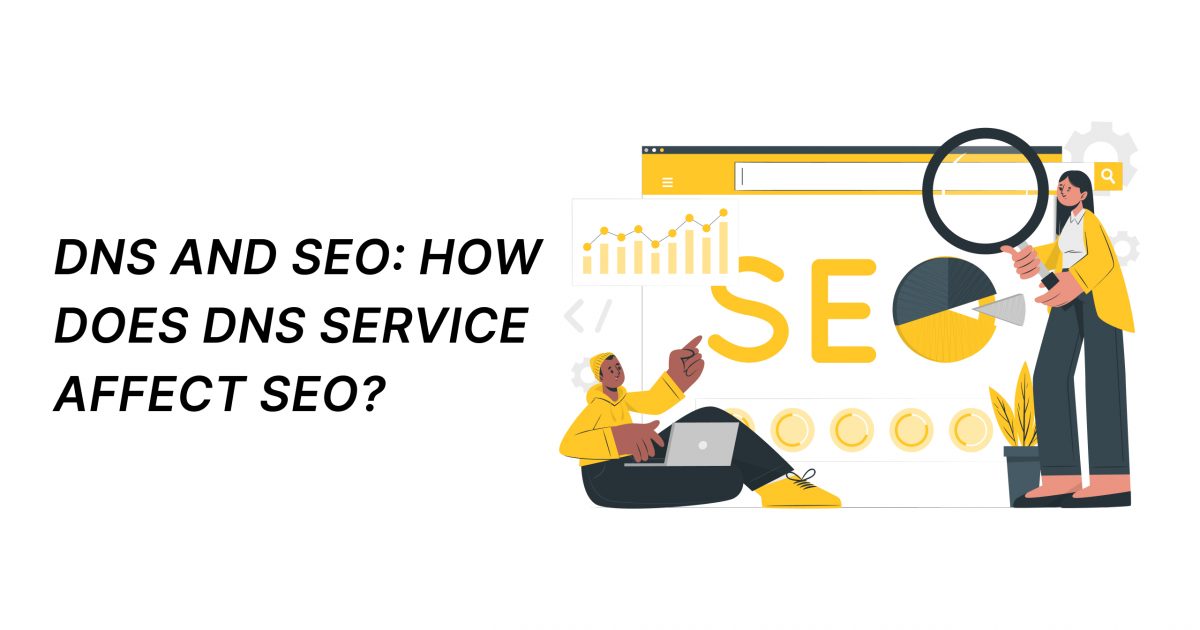In the dynamic expanse of the internet, where information is accessed with a click, the nexus between DNS (Domain Name System) and SEO (Search Engine Optimization) proves pivotal in shaping a website’s digital prominence.
Grasping the complexities of DNS and its influence over SEO emerges as indispensable for website admins, marketers, and developers alike. So, there’s this thing about managing the behind-the-scenes stuff of websites, kinda like being a backstage manager. It’s all about the DNS settings.
Understanding DNS For SEO
Think of DNS like the phonebook of the internet. It’s super important because it helps change website names that we can remember into numbers that computers understand. Imagine if we didn’t have DNS.
We’d have to remember a bunch of complicated numbers to visit our favorite websites! That would be really tough. DNS makes everything easier for us when we’re online. It works in the background to make sure everything updates smoothly on the web without any problems.
DNS Components
Behind the internet scenes is the DNS crew – servers, resolvers, and authoritative nameservers teaming up. DNS servers act like translators, making things smooth. Resolvers, in devices or with providers, ask questions like curious minds. Authoritative nameservers keep crucial domain info, like keys to a secret vault. It’s a seamless performance, like a well-coordinated dance!
DNS Resolution Process
So, imagine you’re looking up a website, right? It’s kind of like starting a mini quest. The quest is all about finding this unique code (that’s the IP address) so your phone or computer can show you the website. Now, the speed of this whole thing really matters.
Why? Because the faster it happens, the quicker you see the website. And when websites load fast, it’s not just cool for us, it’s also great for SEO, which basically means the website does better on Google and stuff. It’s like giving your website a super-fast rocket boost – it makes everyone happy, both us and the search engines!
Impact of DNS on SEO
The following are the significant impacts according to my observation and experience:
Website Accessibility and Page Loading Speed
When it comes to SEO, it’s really important how fast your website loads. Think of Google like a teacher who gives grades. Google checks how fast websites load before deciding where they should appear in search results. If your website takes too long to load, it’s often because of slow DNS queries. What’s DNS? It’s kind of like a big phone book for the internet. And you know what? Google notices these things. So, if your website’s pages are slow because the DNS is taking its sweet time, it could make your website not show up as high in search results.
Domain Name Configuration
Configuring your domain name is akin to directing a dance routine for your website’s presentation. This process encompasses the particular arrangement of DNS records, namely A, CNAME, and MX. The Global DNS Propagation Checker is your assistant. This tool oversees modifications, guaranteeing a smooth deployment across the vast expanse of the internet. Think of it as your technologically adept stage manager, dedicated to ensuring an impeccable online performance.
DNS Best Practices for SEO
So, here’s what I’ve noticed and learned from my own experience about DNS for Better SEO:
Choosing a Reliable DNS Provider
Choosing the right DNS provider is crucial. It’s like picking a trustworthy guide for your website’s online journey. You want one that’s always up and running (uptime), covers the whole global map (global network coverage), and has strong security measures. If your chosen provider has downtime or responds sluggishly, it can seriously mess with your SEO rankings, which is not good for business. So, selecting a DNS provider isn’t just a checkbox; it’s a smart move that can shape your online success strategy.
DNS Security Measures
The inclusion of DNSSEC enhances the resilience of the Domain Name System by establishing an additional level of authentication protocols. This comprehensive defense mechanism serves as a defense against harmful activities, especially preventing the deceitful schemes of DNS spoofing. Beyond its role as a protective shield, the integration of DNSSEC significantly raises the overall reliability and integrity of a website.
Monitoring and Optimization
Efficient oversight of the Domain Name System (DNS) plays a pivotal role in upholding a fast and smooth user experience on websites. Employing tools and methodologies to examine DNS metrics empowers website proprietors to promptly pinpoint and address potential issues. Consistent modifications to DNS configurations not only facilitate rapid issue resolution but also play a part in continuously improving Search Engine Optimization (SEO) advantages. Striking the appropriate equilibrium between thorough metric analysis and timely issue resolution is essential for the responsible management of online platforms.
Conclusion
The complex link between DNS and SEO holds a key position in deciding the success of a website in the digital domain. Every aspect involving the DNS resolution process, configuration of the domain name, and precautionary measures distinctly impacts the formation of SEO standings. Utilizing sophisticated methodologies and staying abreast of developing trends empowers website proprietors to ensure peak efficiency and prominence. The interplay of these elements orchestrates a smooth symphony resonating throughout the online landscape, steering the website toward success.


